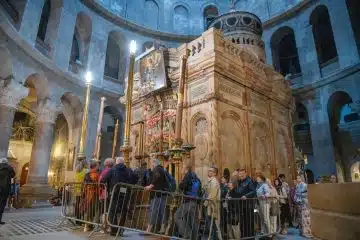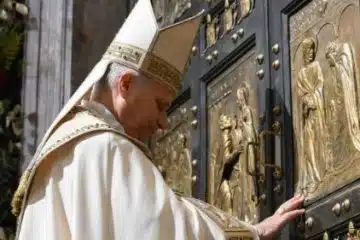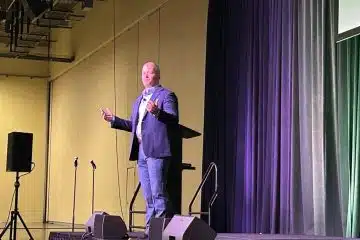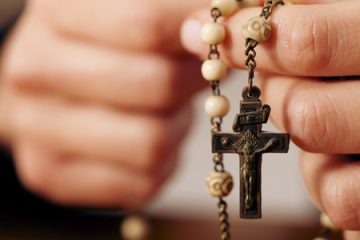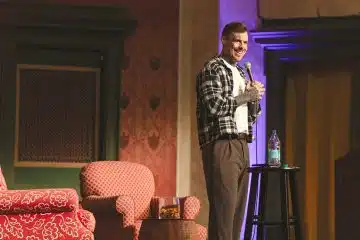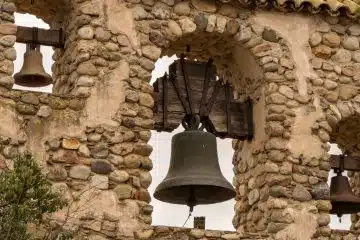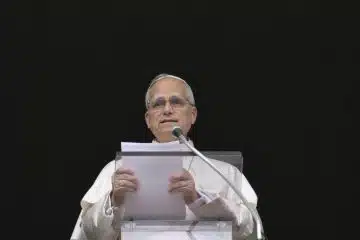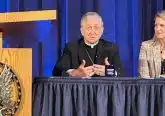Keeping Our Humanity in the Midst of the AI Revolution
“They’re projecting that AI assistants will be available to consumers within the next ten years. Looks like John and Jane Doe will have personal robots at home.” My brother Brian punctuated this statement with his brow raised in excited curiosity, then took a sip of his coffee.
“Personal robots,” I echoed slowly, mulling over the concept with hesitation. Unable to put my finger on why, my welling interior response was refusal. Not ready to decide one way or the other, I asked, “To do what?”
“Whatever you need!” he said. “Mow the lawn, cook dinner, do your taxes. Work.”
Artificial intelligence (AI) is certainly getting attention these days. ChatGPT, Claude, and every similar platform have made a loud entrance on the world stage. Now, it’s in our pockets. Do you need a meal plan based on grocery sales and dietary restrictions? Submit the command and a chatbot spits out a menu. Do you need a little clarity on Church teaching? Apps like Truthly and Magisterium AI are Catholic, offering a more accessible catechesis to every user.
The possibilities seem endless! As a soul, a spouse, and a parent, I’m watching AI’s presence grow, and I’m looking to the Lord and the Church for guidance.
My line of thinking admittedly veers traditional, even unplugged. I’d rather my kids build forts in real life than on Minecraft. If I could check an opt out box to rid my life of digital distraction, I would. The reality that AI’s advancement is increasing every day scared me at first. I’m already trying to decrease the technology that my family accesses and that has access to my family; but I suspect AI will slip as easily into the culture as smart phones; so, the decision is to adjust our sails and keep our souls.
Now, I could enlist ChatGPT to write a Catholic commentary on AI, but that’d be cheating; and that is precisely the point I’d like to make.
The Lord infused humanity with His own characteristics, like connection, creativity, and the ability to work. Like any other tool, AI is not good or bad in and of itself but can be used either way. Tools should be used to support our humanity rather than take away from it or replace it.
What concerns me about artificial “intelligence” is that it’s already stepping in where only a person belongs—someone made in the Image and Likeness of God—and society is gearing up for it to do even more. Search for a print of the Sacred Heart and you’ll find as many AI-created images as those produced by people. Users are even forming artificial relationships with chatbots that were programmed to take the place of a friend, parent, or romantic partner. In both cases, what is being produced isn’t real, but as the name indicates: “artificial”.
Human relationships and craftsmanship are deeply good, beautiful, and authentic. An honest connection with another person is a buoy in life that makes trials less consuming and blessings more uplifting. A job well done compels us to marvel not just at the finished product, but at the diligence and skill of the soul behind it. Connection and work let us imitate our own Creator and participate in our divinely designed nature. Pope St. John Paul II said:
“Work is a good thing for man[…]because through work man not only transforms nature, adapting it to his own needs, but he also achieves fulfillment as a human being and indeed, in a sense, becomes ‘more a human being’” (Laborem Exercens).
Bearing this in mind, it is paramount that we draw a hard line to safeguard what is rightly human. As this thing develops, we need to return to this standard over and over: is a given use of AI supporting me as a person, or am I using it to do something inherently human? Relationships, work, and creativity are challenging, but we are made to rise to the occasion.
A couple weekends ago, I spent an entire Saturday hard at work in my yard. I mowed, worked on my garden, and straightened up the garage. At the end of the day, my husband made his signature burgers for the family. We were satisfied and grateful.
 Katie Sciba is a national speaker and Catholic Press Award-winning columnist. She and her husband Andrew were married in 2008, and are blessed with seven children
Katie Sciba is a national speaker and Catholic Press Award-winning columnist. She and her husband Andrew were married in 2008, and are blessed with seven children
This article appeared in the July 2025 edition of The Catholic Telegraph Magazine. For your complimentary subscription, click here


